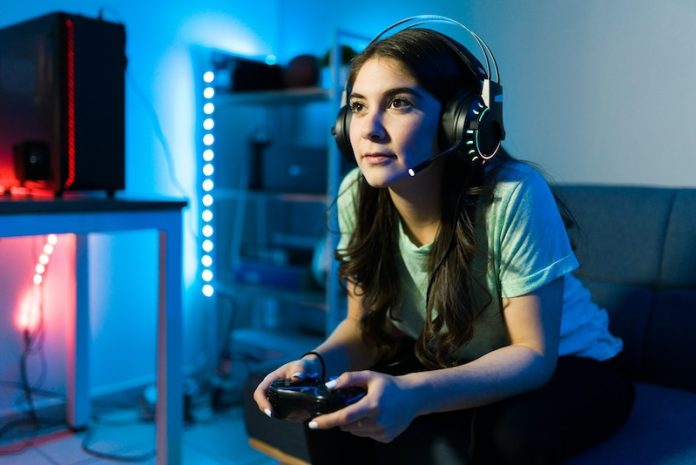
A recent large-scale study has uncovered an interesting connection between video games, exercise, and brain health.
The study found that playing video games may enhance cognitive abilities, like memory and reasoning, while regular exercise plays a key role in improving mental well-being. However, each activity seems to benefit different parts of mental health, not both at once.
This research is part of the Brain and Body Study, a collaborative effort between Western University in Canada and the Science and Industry Museum in the UK.
It was conducted for the Manchester Science Festival and is now available as a preprint on PsyArXiv, which means it’s accessible for anyone to read before it gets officially published.
The study had more than 2,000 people from various countries sign up. First, they completed a lifestyle survey about their daily activities, and then they played a set of online brain games designed to measure different mental skills, like memory, attention, and verbal abilities.
These games were provided by Creyos, a well-known platform for cognitive testing.
The lead scientist, Adrian Owen, a well-respected neuroscientist at Western University, focused on how gaming and exercise affected both cognitive performance and mental health. Out of the initial group, about 1,000 participants completed all the tasks.
The findings were clear: those who played video games for five or more hours each week showed improved cognitive abilities. This means that their brains worked more effectively in tasks involving problem-solving, memory, and reasoning.
Interestingly, the effect on their mental health—things like anxiety or depression—remained unchanged by gaming.
On the other hand, participants who followed the World Health Organization’s (WHO) guidelines of doing at least 150 minutes of physical activity each week reported better mental health.
These individuals were 12% more likely to say they had no signs of depression and 9% more likely to show no symptoms of anxiety. However, their cognitive performance didn’t show a noticeable improvement.
The study suggests that these results are not just influenced by people who already had severe anxiety or depression.
In fact, the most significant changes were seen in people who had mild or no symptoms to begin with, showing that regular exercise can help maintain good mental health.
The results offer an interesting view of how the brain and body are connected, even if we don’t fully understand the details.
For instance, we know from daily experiences that being hungry can make it hard to focus, or that stress can cause physical tension. But understanding how these effects work scientifically is still a challenge.
According to Adrian Owen, these findings could help people choose activities that encourage healthier aging of the brain. Owen will be sharing more details about the study at the Science and Industry Museum during the Manchester Science Festival, which runs from October 18 to 27.
Festival-goers will even have a chance to participate in a follow-up study. While the original research looked at long-term impacts of gaming and exercise on the brain, this pilot study will focus on shorter-term effects.
People attending the festival can get involved in quick tests to see if there are immediate benefits to their mental abilities after physical activity or gaming.
In addition to the main study, Owen is also involved in another festival project called “State of Mind.”
This piece, created by the Squidsoup art collective, uses a 3D arrangement of LED lights and sound to explore how our brain reacts to light and sound. The artwork is inspired by Piet Mondrian, a famous artist known for his geometric paintings.
In conclusion, this study gives new insights into how different activities impact mental and cognitive health. While gaming can keep your brain sharp, exercise helps your mood and mental well-being.
These results encourage us to think carefully about how we spend our time to maintain a healthier mind and body.
If you care about wellness, please read studies about how ultra-processed foods and red meat influence your longevity, and why seafood may boost healthy aging.
For more health information, please see recent studies about the power of pickle juice , and time-restricted eating: a simple way to fight aging and cancer.
The research findings can be found in PsyArXiv.
Copyright © 2024 Knowridge Science Report. All rights reserved.



